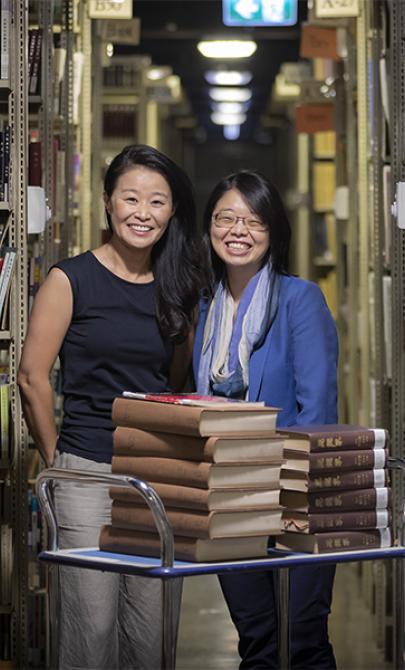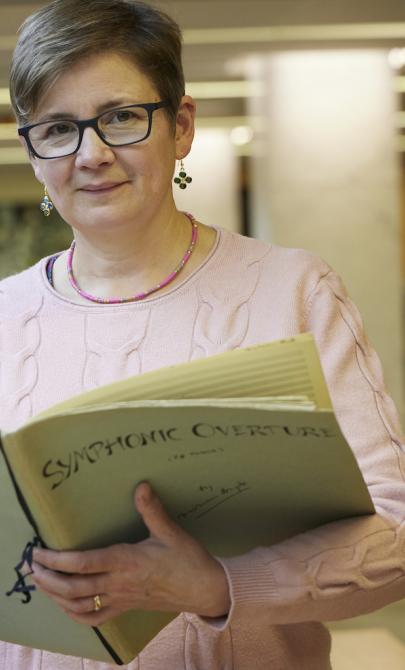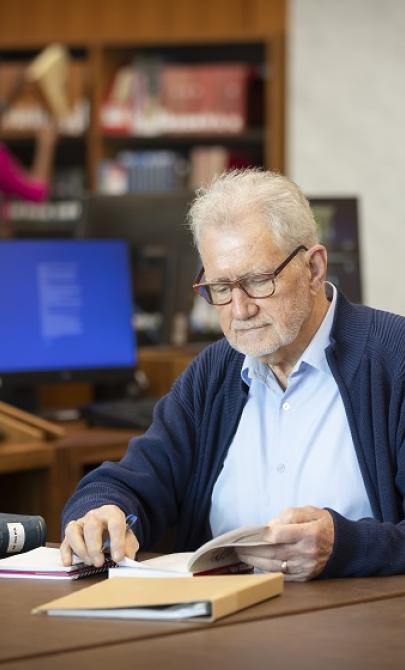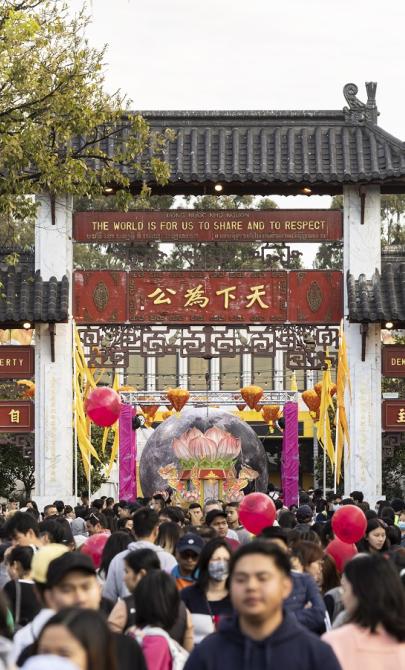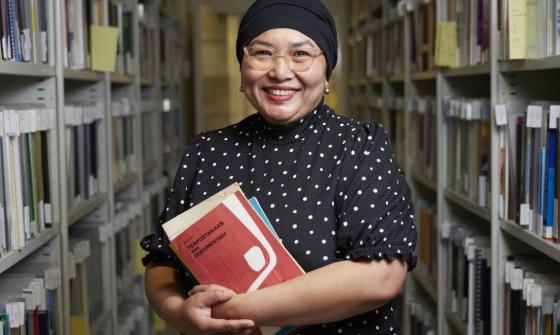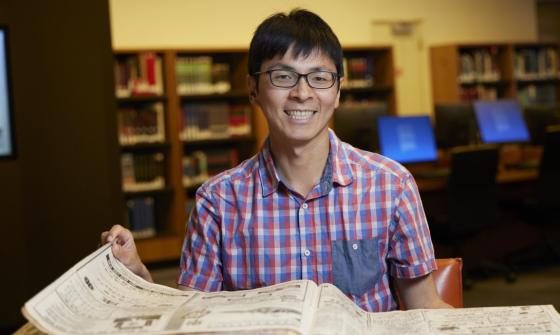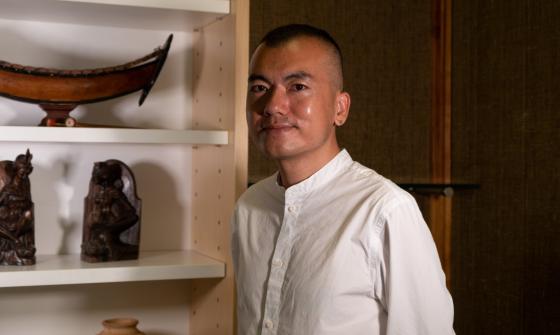Asia Study Grant recipients
Our Asia Study Grants program has been funded by the Harold S. Williams Trust and other generous donors.
2025 recipients
Supported by the Harold S. Williams Trust
- Dr Wing-Fai Wong (University of Queensland), A Mystery of Celestials: Uncovering the Secrets of Chinese Chronomancy and Rituals in Temple-Opening Ceremonies in Australia
- Ms Rima Febriani (Monash University), The Desire to Know: The Formation of Sexual Knowledge in Postcolonial Indonesia
- Ms Hwee Ping Teo (RMIT University), The Singapore Chinese Massacre of 1942 in History and Memory
- Mr Justin Lau (Australian National University), Garbage Enterprises: Tracing Circular Economies in Cambodia
- Mr Michael Haryo Bagus Raditya (University of Melbourne), Dangdut Agency in the Era of Internet Disruption: Indonesian Music for the People and the World
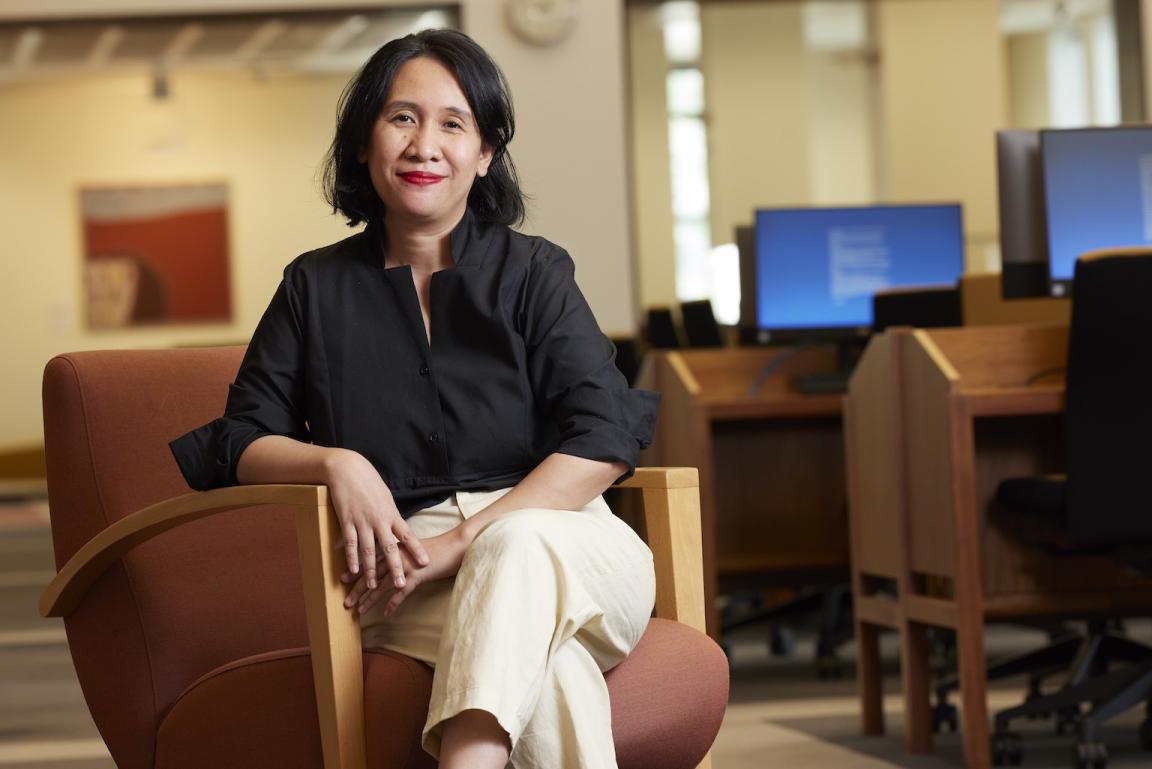
2025 Asia Study Grant recipient, Ms Rima Febriani
2025 Asia Study Grant recipient, Ms Rima Febriani
Past recipients
Asia Study Grant recipients, 2018 to 2024
Supported by the Harold S.Williams Trust
- Dr Anita Dewi (Charles Sturt University), Libraries, librarianship, and librarians in Indonesia: the past and present
- Rafiqa Qurrata Ayun (University of Melbourne), Revisiting the origin of Indonesia's blasphemy law; how illiberal politics shapes the discriminative law
Supported by Opalgate Foundation
- Associate Professor Olivia Khoo (Monash University), Genealogies of Asian Australian Leadership
- Associate Professor Shih-Wen Chen (Deakin University), Science, Children, and the Environment in Chinese Children's Literature, 1875-1945
- Suprawee Asanasak (University of Melbourne), Translation and Transmission of Thai Legal Tradition
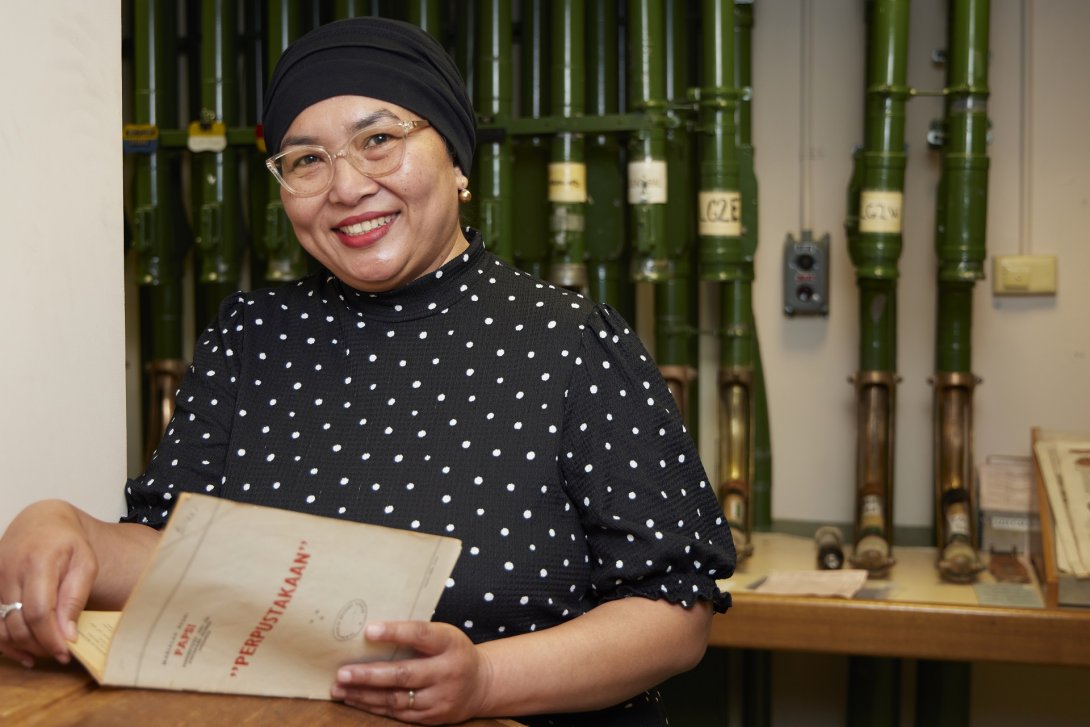
2024 Asia Study Grant recipient Dr Anita Dewi
Supported by the Harold S. Williams Trust
- Dr Yao-Tai Li (University of New South Wales), The changing rhetoric of racial discrimination against Chinese migrants in Australia after 1973
- A/Prof Joanna Elfving-Hwang (The University of Western Australia), Cosmetic Matters: The Body and Beauty Work in Korea
- Ruonan Chen (Australian National University), Making Hospitals in Tibet
- Yahia Zhengtang Ma (The University of Melbourne), Chinese Gay Men in Australia: Difference and Sameness, Border and Bordering
- Dr Andres Rodriguez (The University of Sydney), Moving War: Connectivity and Regionalism in China’s Burma Road, 1937-45
Supported by Kent Anderson
- Ausma Bernotaite (Griffith University), The digital infrastructure of the Ministry of Public Security of the People’s Republic of China
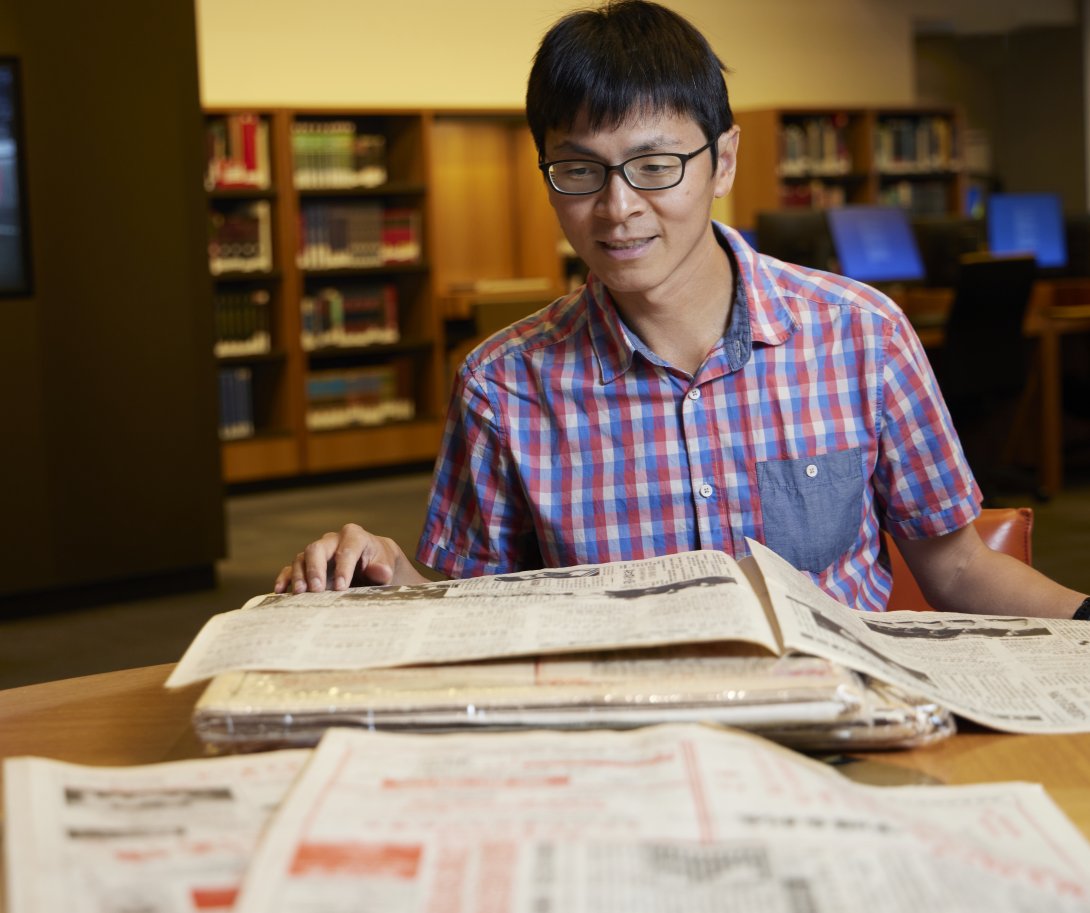
Supported by the Harold S. Williams Trust
- Dr Annisa R. Beta (University of Melbourne), A Genealogy of Modern Indonesian Girls
- Tyler Gleason (University of Melbourne), The cultural construction of HIV and AIDS in China’s provincial and local newspapers in the 1980s
- Dr Mei-fen Kuo (Macquarie University), Documenting Chinese Australian community in the context of Cold War
- Jayson Jimenez (University of Tasmania), Archipelagic Migration and Climate Change: Revisiting the Beyer Archive
- Younghye Whitney (Australian National University and University of Western Australia), Transnational Intellectual Networks and Social Movements in South Korea 1970s - 1980s
Supported by Kent Anderson
- Dr Warren Sun (Monash University), The Honest Bloke Who Turned China Around-- A chronicle of Chairman Hua Guofeng’s Political Career (1971-1981)
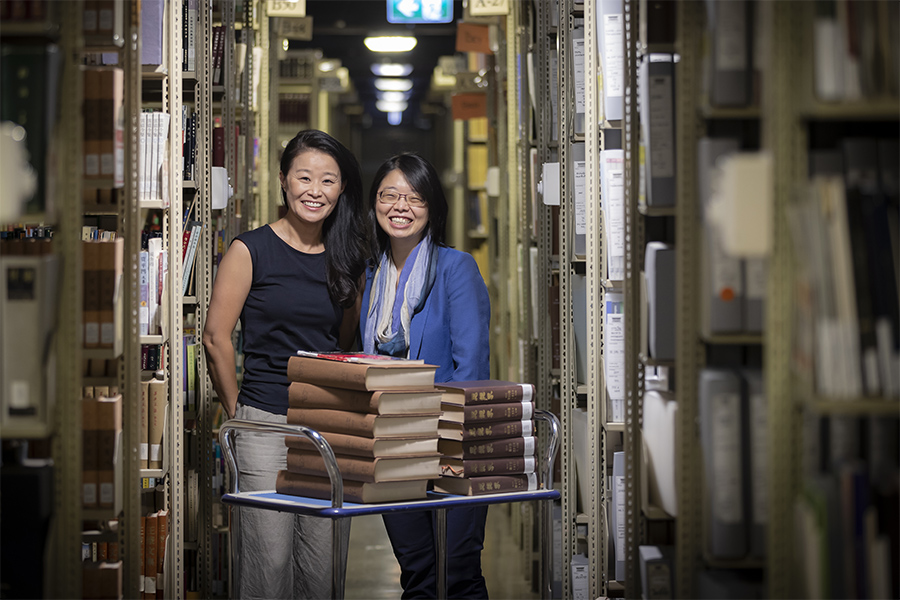
2022 Asia Study Grants recipients Ms Younghye Whitney and Dr Mei-Fen Kuo.
Supported by the Harold S. Williams Trust
- Professor Adrian Vickers (University of Sydney), Indonesian, Malaysian and Netherlands Indies Sources on Australia, 1930–1970
- Dr Benjamin Hegarty (University of Melbourne), Twenty-five years of HIV/AIDS in Indonesia: epidemiological histories and community memories
- Mr Yang Zhao (University of Queensland), Changes of masculinities and national narrative of Uyghur men in China’s state-run media, 1949 – 2019
- Dr Tets Kimura (Flinders University), Discovering social, political and cultural backgrounds behind Japanese war art made by civilians (Japanese diaspora) and POWs (Japanese nationals) in Australian internment camps during the Second World War
- Dr Kathryn Kelly (Queensland University of Technology), A Special Relationship: Connections between Japanese and Australian artists and artistic movements in modern and contemporary Japan and Australia
Supported by Kent Anderson
- Professor Yi-Chong Xu (Griffith University), The State Council -- the core executive government in China
Supported by Manor Gate Group
- Dr Craig Smith (University of Melbourne), Chinese Perspectives on the China-Australia Relationship: Critical Documents from 1850 to 1972
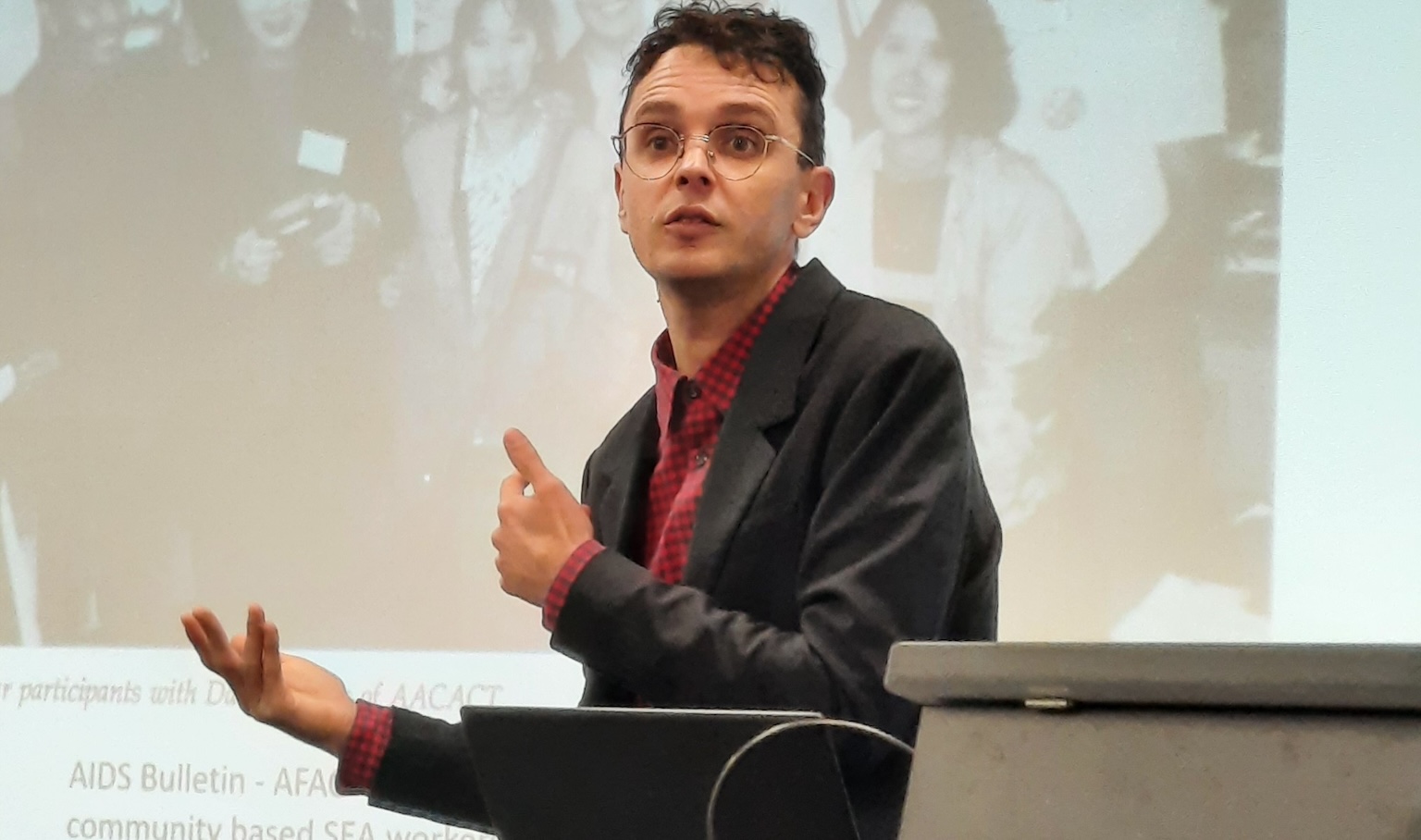
2021 Asia Study Grant recipient, Dr Benjamin Hegarty
Supported by the Harold S. Williams Trust
- Dr Megan Rose (University of NSW), Turning anger into smiles: an exploration of relationship between Kawaii culture and feminist activism
- Ahmad Rizky Mardhatillah Umar (University of Sydney), The idea of Asia in world politics
- Faye Chan (University of Melbourne), Citizenship vs alienage and the intersectionality of law, race and gender: the legal status of Chinese Indonesian women, 1850-2014
- Minerva Inwald (University of Sydney), The Socialist Art Front: Revolutionary Practice and the Fine Arts in the People’s Republic of China, 1962–1979
- Dr Arjun Subrahmanyan (Murdoch University), Democracy fulfilled and betrayed: culture and politics in Thailand, 1945-1958
Supported by the Wong Family
- Jiyuan Yin (University of Melbourne), Scandal: sex, race and power in Treaty Port China 1890-1920
Supported by Professor Kent Anderson
- Jonathan Peter (University of Melbourne), The Indonesian student movement as a historic entity
Supported by private funders
- Dr Pan Wang (University of NSW), Love in China – 1950s to the present
- A/Prof Chi Kong Lai (University of Queensland), Australian Chinese business practices and strategies, 1900-2000
Supported by generous donors to the National Library of Australia
- Dr Tin Kei Wong (University of Adelaide), Preaching womanhood: American Protestant missionary Laura M. White and her Chinese translations of English fiction
Supported by Manors Gate Group
- Dr Yu Tao (University of Western Australia), The history of Australia in Chinese language publications (1979-2019)
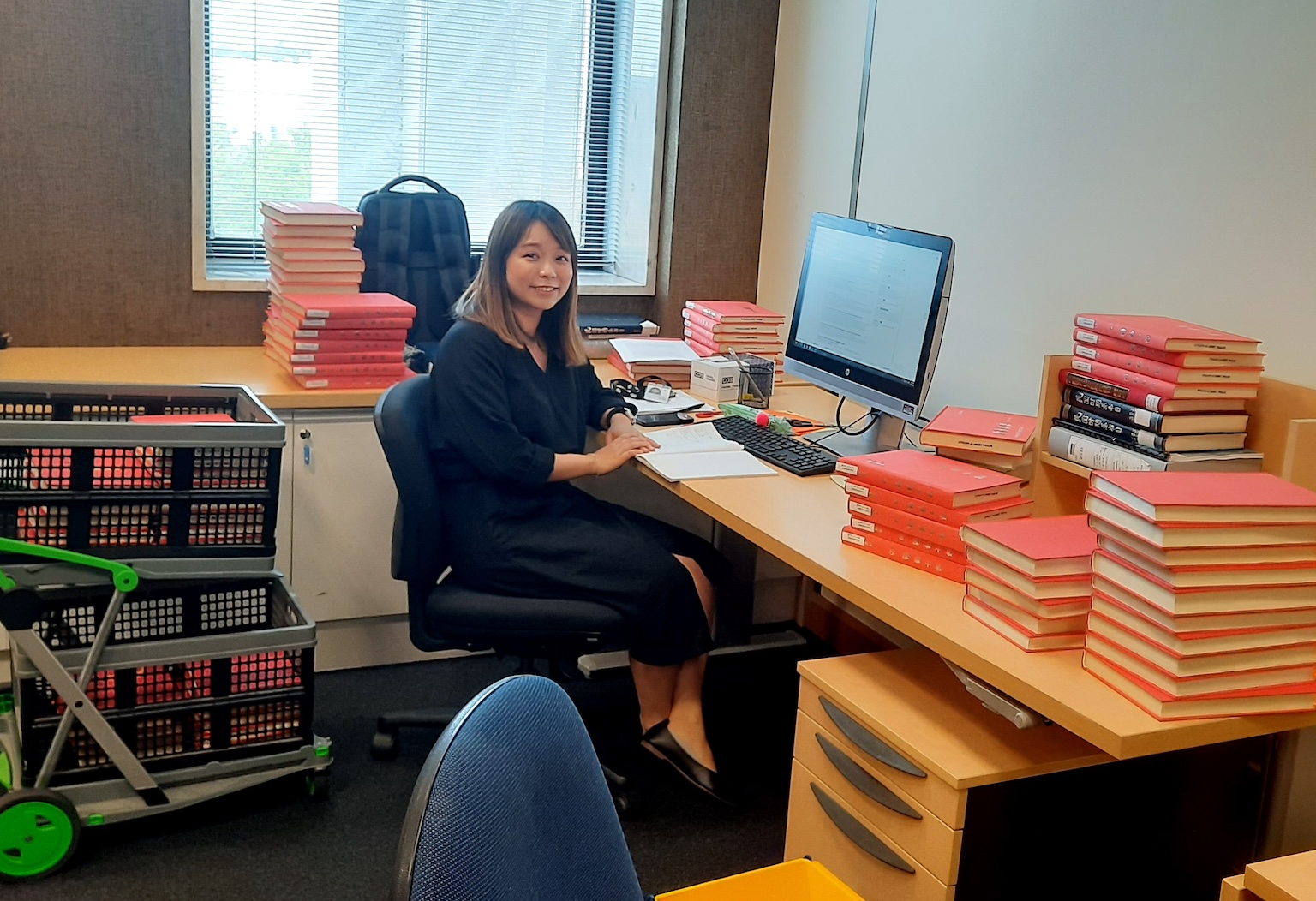
2020 Asia Study Grant recipient, Dr Tin Kei Wong
Supported by the Harold S. Williams Trust
- Thi Huyen Linh Nguyen (University of Wollongong), Mediascapes and national imaginaries: LGBT characters in media in Vietnam
- Ravando Lie (University of Melbourne), Re-Examining the Voices of Progressive Chinese-Indonesian Nationalists: The History of Sin Po, 1910-1965
- Bernard Keo (Monash University), Cosmopolitan Lives: The Peranakan Chinese in SoutheastAsia, 1918-1937
- Kwannie Krairit (University of Wollongong), Reading and Re-creating: The Adaptation of Shōnen Manga in Thailand
- Atsushi Yamagata (University of Wollongong), Japanese responses to refugees
Supported by Alice Wong
- Dr Yichi Zhang (University of Technology Sydney), Intertwining modernities: shaping the urbanism of China mercantile
Supported by Professor Kent Anderson
- Associate Professor Melissa Crouch (University of New South Wales), Legal Legacies of Authoritarian Regimes: The Role of Courts in Myanmar
Supported by private funders
- Dr Steven Farram (Charles Darwin University), Social and political dimensions of Indonesian and Timor-Leste popular music, 1960s-1980s
- Associate Professor Thomas Barker (Independent scholar, QLD), Debating National Cinema in Indonesia: 1950 to 1965
- Toshiki Asakura-Ward (University of Adelaide), A Biography of the Yokohama Foreign General Cemetery: Memorialisation of 'Foreigners' since the Meiji Era
Supported by generous donors to the National Library of Australia
- Shan Windscript (University of Melbourne), Discourse of Diary-Writing and Ideals of Socialist Selfhood in Maoist China, c1950s-1976
Supported by Global Business College of Australia
- Dr Sanzhuan Guo (Flinders University), Dual nationality, overseas China and international relations: past, present and future
- Professor Louise Edwards (University of New South Wales), Peace and pacifism in China
- Dr Lintao Qi (Monash University), Literature in the service of cultural diplomacy: patronage and the circulation of China literature
Supported by Manors Gate Group
- Rebecca Hausler (University of Queensland), Japan's literary ghosts: The haunting of theatrical productions depicting wartime internment
Honorary Grant Recipients
- Dr Shengyu Fan (Australian National University), The Story of the Stone’s Journey to the West
Supported by the Harold S. Williams Trust
- Professor John Crossley (Monash University), The Earliest History of the Spanish Philippines
- Dr Joost Coté (Monash University), Colonial knowledge: Constructing a ‘science’ of the East Indies, 1850-1910
- Dr Emma Dalton (RMIT University), Gender and the Japan Self-Defense Forces
- Ms Debbie Chan (University of Western Australia), The “Zero” Masculinity of the Modern Boy: Contesting the Meaning of Modern Boy: Contesting the Meaning of Modern Masculinity in Interwar Japan
- Mr Oscar Jr Sequiña (University of Melbourne), Trainable Tongues: Pedagogical and Performative Sites of Speech in the Philippines
Supported by Alice Wong
- Mr Kent Wan (University of Queensland), The Rise of Hong Kong Identity Political Conflicts in the Colony, 1949-1989
Supported by Professor Kent Anderson
- Dr Vannessa Hearman (Charles Darwin University), From Dili to Darwin: The 1995 voyage of the Tasi Diak asylum seeker boat and its aftermath
Supported by private funders
- Dr Alistair Welsh (Deakin University), Australia’s Forgotten Coco Islanders: Historical Migrations, Cultural Identity and Citizenship
- Dr Hironori Onuki (University of Wollongong), The Politics of Temporary Worker Programs in Contemporary Japan
Supported by Global Business College of Australia
- Dr Yingchi Chu (Murdoch University), Chinese Cartoons as Visual Discourse
- Ms Xiaoqing Kong (University of Queensland), Dwelling in Shenzhen: Development of Living Environment from 1979 to 2018
- Mr Shensi Yi (University of Sydney), Young Revolutionaries in the Cosmopolitan Metropolis: Shanghai’s Local Communists, 1920 – 1935
Honorary Grant Recipients
- Dr Olivier Krischer (Australian National University), Picturing China for the World – Stanley O. Gregory, Kelly & Walsh publishers and photographic books in 1920s-30s China
- Dr Rina Kikuchi (Shiga University), Japanese Women’s Poetry before and during the Asia-Pacific War of World War II
Japan Study Grant recipients, 2008-2017
Recipients of our Japan Study Grants from 2008 to 2017, funded by Harold S Williams Trust Fund.
The program supported scholars researching on Japan and requiring special access to the Library’s Japanese and Japan related collections.
| Recipient | Research |
|---|---|
| Ms Laura Clark | Comparing Japanese and English-language theoretical constructions of Japanese masculinities |
| Mr Caleb Kelso-Marsh | Night (mare) and the City: The Transnational Context of Film Noir and Conditions of Modernity in Korean and Japanese Crime Films |
| Dr Emily Brink | Playing with Time: Kabuki, Temporality, and Japanese Actor Prints after Photography |
| Dr Narrelle Morris | Images of Justice William Webb at the Tokyo Trial |
| Dr Yasuko Hassall Kobayashi | Japanese Soldiers Migrant Experiences – through the ATIS Interrogation Reports |
| Recipient | Research |
|---|---|
| Dr Natsuko Akagawa Global, Urban and Social Studies, RMIT University | Visualising Imperialism: Japan and its 'Exterior Territories' 1900–1945 |
| A/Prof Tomoko Aoyama School of Languages and Cultures, Faculty of Humanities and Social Sciences, University of Queensland | Tsurumi Kazuko and Shunsuke in Australia, 1937 |
| Dr Lucy Fraser Lecturer in Japanese, School of Languages and Cultures, University of Queensland | Animal-Human Interactions in Japanese Tales Retold: Retelling Takizawa Bakin's Dog-Human Interactions in Sakuraba Kazuki's 'Fuse: A Counterfeit Eight Dog Chronicles' |
| Ms Mayu Kanamori independent scholar, photographer and script writer, Sydney | Japanese Women in Australia |
| Dr Helen Kilpatrick Senior Lecturer, Japanese in the Faculty of Law, Humanities and the Arts, University of Wollongong | The Modern Melancholic Aesthetic in Shôjo Fiction and Art |
| Recipient | Research |
|---|---|
| Mr Gwyn McClelland PhD candidate in Japanese Studies, Historical Anthropology, Cultural Anthropology, Abrahamic Religions, Monash University | 'Dangerous memory' in Urakami and Nagasaki |
| Dr Barbara Hartley Senior Lecturer, Japanese Studies, Head of Discipline, Asian Languages and Studies, University of Tasmania | Imagining the Continent: Representations of the Asian Mainland in Shôwa Era Japanese Cultural Production in Showa Japan |
| Mr Darren Swanson School of Languages and Cultures, University of Sydney | Athletecism, Freemasonry and Clubbability: Expatriate Social Networks in Kobe |
| Dr Alison Broinowski ANU College of Asia & the Pacific Centre for Asian Societies and Histories. Based in Sydney | Counter-culture: Norman Sparnon and the power of flowers |
| Prof Sandra Wilson Professor - History and Japanese Studies, Murdoch University | Japanese War Crimes, 1941-1945 |
| Recipient | Research |
|---|---|
| Dr Shigeru Sato Senior Lecturer in Asian Studies, School of Humanities and Social Science, University of Newcastle | Collateral Damages of World War II in Southeast Asia: A Comparative Study |
| Mr Martin Veres PhD candidate in Japanese at the University of Wollongong | Space, Modernism, and Morality in the Children's Fiction of Akutagawa Ryūnosuke |
| Ms Prue Holstein Candidate for Masters of Arts convertible to a PHD, Monash University | Japanese German Commercial Relations and Effect of World War One on those relations |
| Mr Ross Tunney PhD candidate in the Asian Languages and Studies at University of Tasmania | Constructing the Self: Photography, Alterity, and Identity in Post-war Japanese Photography |
| Mr Alexander Brown PhD candidate in Faculty of Law, Humanities and the Arts, University of Wollongong | The Precarity of Protest: Changing Labour Market Structures and Anti-nuclear Movements in Japan After Fukushima |
| Recipient | Research |
|---|---|
| Dr Victoria Eaves-Young Honorary Associate, University of Tasmania | The Diary of Tamura Yoshikazu: Writing Under the Gaze of the Kokutai During the Japanese Imperial Army New Guinea Campaign |
| Ms Machiko Ishikawa PhD Candidate, School of Asian Languages and Studies, University of Tasmania | Nakagami Kenji: Paradox and the Representation of Silenced Subaltern Voice |
| Dr Emiko Okayama Honorary Fellow, Asia Institute, The University of Melbourne | The World (sekai) and Innovation (shukō ) of Edo Yomihon: investigating Bakin's adaptation techniques |
| Ms Kirsti Rawstron PhD candidate, History and Politics at the University of Wollongong | A Comparative Study Gender Equality in Education and Employment in the post-CEDAW Asia-Pacific Region: Special Focus on Japan |
| Recipient | Research |
|---|---|
| Dr Chiaki Ajioka Independent scholar, NSW | Mingei Intercultural: cross-cultural interpretation of Mingei |
| Ms Kumiko Kawashima PhD candidate in Anthropology, Department of Political and Social Change, Australian National University | Youth migration and social change: Japanese information and service workers in a Chinese economic development zone |
| Dr Miyume Tanji Targeted Curtin Research Fellow, Centre for Advanced Studies in Australia, Asia and the Pacific, and Centre for Human Rights Education | Bases, Islands and Communities: protecting the US-Japan Security Alliance in Okinawa and Guam |
| Recipient | Research |
|---|---|
| Mr Russell Kelty PhD candidate, University of Adelaide | Kukai and Japanese mandalas |
| Ms Stephanie Coates PhD candidate, Japanese Program, Asian Studies, School of Social Sciences, Faculty of Humanities and Social Sciences, La Trobe University | Young women and mobile fiction on contemporary Japan |
| Ms Lesley Crowe-Delaney PhD candidate, Curtin University | Tourism and coastal development in Hyogo Prefecture, Japan |
| Dr Kay-Wah Chan Senior lecturer, Department of Business Law, Faculty of Business & Economics, Macquarie University | Evolution and historical development of the judicial scrivener profession in Japan |
| Associate Professor Sandra Wilson School of Social Sciences and Humanities, Murdoch University | The repatriation and release of convicted Japanese war criminals, 1945-1958 |
| Recipient | Research |
|---|---|
Associate Professor Masako Gavin "Excellent indexes and databases, as well as a superb collection of books and journals on Japanese history and International Relations enabled me to go into 'lock down' mode and concentrate on my mission – 'impossible' at home." | The Life and thoughts of Ienaga Toyokichi: Bridging over the Pacific |
Ms Akiko Tomatsuri "The NLA's collection of scholarly studies on literature, theatre, and music related to Western influences on modern Japan, allowed me to pursue my research more broadly than at first conceived looking, and encouraged further exploration of the cultural, historical, social, and political contexts of each production. These materials should also be of value to those working on interdisciplinary studies of literature, theatre, or music in the Meiji, Taisho, and early Showa eras." | A study of Western influence on Japan: the reception of ancient Greek drama in post-war Japan |
Mr Erik Ropers "The Library's extensive collection of Japanese reference materials and electronic resources enabled me to fill in important statistical and biographical holes in my research. The collections also contained a number of specialist and low-circulation journals not indexed in the National Diet Library of Japan's catalogue or the MagazinePlus database that proved to be invaluable for my research topic. Before visiting I was unaware of a few of these journals' existence!" | Contested histories and memories of wartime sexual slavery and forced labour |
Ms Amy Reigle (Ainsworth) Newland "In thinking about my recent tenure at the NLA under the auspices of the Japan Study Grant, I am reminded of the oft-cited quote of the 18th-century English author Samuel Johnson, 'The greatest part of a writer's time is spent in reading, in order to write; a man will turn over half a library to make one book." | Toyohara Kunichika (1835-1900) – Artistic Innovator, Traditionalist, or Artist of his Times |
| Dr Thomas Wilkins and Dr Minako Ichikawa-Smart Sydney | Securing Japan-Australia relations |
| Recipient | Research |
|---|---|
Dr Yasuko Claremont "In the library I found a comprehensive supply of books in English specificaly relating to my project, including translations into English of Japanese fiction, and I aslo found interconnected material giving me good background knowledge... "I was quite impressed by some of the latest collections of sociological materials, for example, seven volumes of short stories published in occupied Japan (1945-1952) by Fujiwara Shoten. I came across them while browsing in the stack." | Literary connections between Australia and Japan |
Dr David Chapman "The scheme is highly commendable and extremely effective in achieving its goals.The ability to access resources twenty-four hours a day aslo maximised the efficiency of the time I spent in Canberra. .. The library staff in the Asian materials collection are extremely professional, helpful and knowledgeable. I also benefited from the expertise and assistance of the staff in the general section of the library." | Koseki: the 'State' of creating and controlling Japanese citizens |
Associate Professor Sandra Wilson "As a researcher from Western Australia, I found this grant more useful than I can say. .. In providing japan Study Grants, the National Library of Australia is extending extremely valuable suport to Japan Studies in Australia, of a kind that cannot be replicated by any other institution, because no other institution comes remotely close to the physical and human resources that the National Libray posesses." | Japanese nationalism in the early Meiji period |
Ms Caroline Norma "The Library's collection of materials on comfort women is particularly far-reaching, and includes journals, which is where the latest historical and theoretical work on the subject is usually first published in Japanese. The library also holds non-scholarly sources on Japan's sex industry. The Japanese tabloid journals / magazines that the library holds were also useful for me. ... "Access to the closed stack was an invaluable priviledge that led me to come across many books that I wouldn't have found via the catalogue." | Hostess' entertaining during the US occupation of Japan |
| Recipient | Research |
|---|---|
Mr Mark Pendleton "One of the key benefits of this grant has been the ability to immediately access magazine and journal articles from the stack. It was invaluable to have complete, or nearly complete, collections of major monthly and several weekly publications at hand. "I stumbled across a couple of publications that do not appear on the major magazine/journal database Magazine Plus while browsing the stack shelves, such as Japan Military Review. Being able to extract information from these surprise finds, was a welcome result of having direct access to the stacks." | Remembering the 1995 Tokyo subway gassing: memories and representations of the incident |
Associate Professor Leon Wolff "The literature I accessed was in the field of law, but given the interdisciplinary connotations of my project, I also made wider use of materials in economics, sociology and gender studies. In addition to the secondary literature, I also made wide use of primary source materials, such as Japanese statutes, cases and official statistics. "The opportunity to work in the Asian Reading Room and use the Asian Collection was a prized one. This is for three reasons. First, the National Library boasts excellent indexes and databases. In my first two weeks, I felt I was permanently camped in front of the Japanese-language computer using the Nichigai MagazinePLUS database, an excellent index of academic journals and reviews in the area of the social sciences. Second, the Asian Collection has a superb collection of books and journals in Japanese law. Indeed, I can say with some confidence that it boasts most of the resources (around 70-80%) of those materials that you would expect in a high quality law library in Japan. This makes it one of the world's best libraries (outside of Japan) for researching Japanese law. And given the strategic importance of Japan to Australia both economically and geopolitically, this is a singular achievement." | The death of lifelong employment in Japan? A legal analysis |
Ms Victoria Eaves "The value associated with being able to personally browse the stacks can not be understated. The new catalogue system has enhanced the ability to find material, but nothing can be as useful as actually looking through the surrounding areas. I have located an enormous amount of additional material through this process. "The duration of stay for my fellowship was very satisfactory, particularly as I was afforded the opportunity to stay after hours and on weekends." | Deconstructing myths: The Influence of the Kokutai discourse on Japanese soldier war diaries in New Guinea WWII |
Ms Jennifer Harris "I arrived with a 'wish list' of texts and the intention to target the following four collection areas: the Japanese collection, the Harold S Williams collection, the D.S. Sissons manuscript collection and the Petherick rare books collection. "I wish to thank the National Library for this generous opportunity for such open access to materials both across collections but equally importantly unfettered by normal library hours. It enables those study grant recipients who have the complexity of family, study and work commitments to go into 'lock down' mode in a way not possible in the usual home study environment." | The formation of Japanese art collections in Australian public museums, 1879-1945 |
Dr Kate Barclay "My initial aim in applying for a Japan Studies Grant was to look at Japanese fisheries governance, focussing particularly on aspects of fisheries connected to relations with neighbouring countries. I found quite a lot of this kind of material in a range of Japanese fisheries histories in the NLA collection. .... This material will feed into an ongoing project I have on a history of international relations between northeast Asian countries through fisheries interactions. ... Because a month is a short period and because I found a great deal of other material also in the collection, I did not read these histories in depth during the month, rather I made copies of pertinent parts of books and noted the names of others I might want to borrow through inter-library loans later." | Japanese governance of fisheries |
